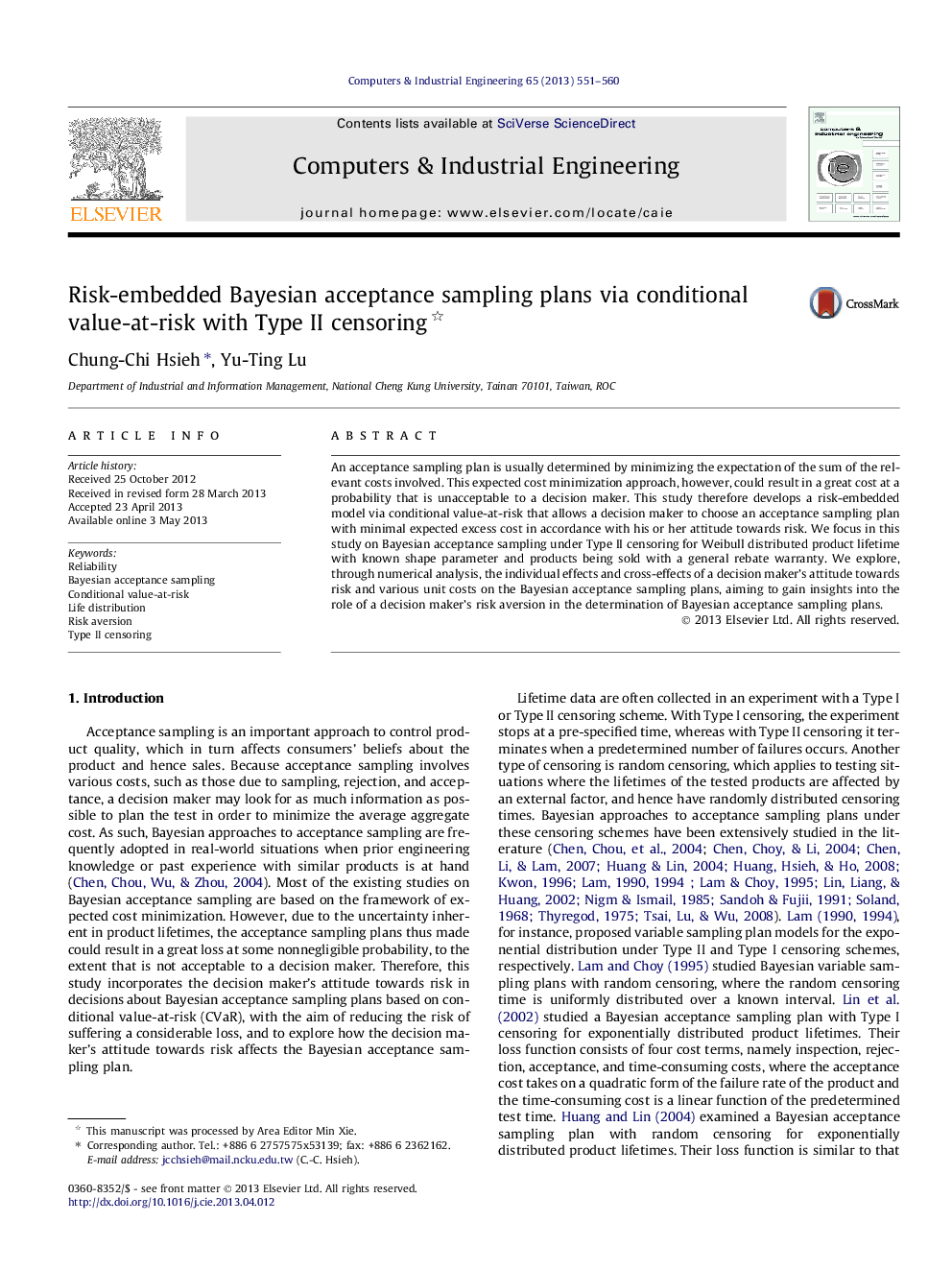| Article ID | Journal | Published Year | Pages | File Type |
|---|---|---|---|---|
| 1134361 | Computers & Industrial Engineering | 2013 | 10 Pages |
•We develop risk-embedded Bayesian acceptance sampling plans.•Our risk-embedded model is based on conditional value-at-risk.•We focus on Bayesian acceptance sampling plans under Type II censoring.•We explore the effects of risk aversion and various costs on these plans.
An acceptance sampling plan is usually determined by minimizing the expectation of the sum of the relevant costs involved. This expected cost minimization approach, however, could result in a great cost at a probability that is unacceptable to a decision maker. This study therefore develops a risk-embedded model via conditional value-at-risk that allows a decision maker to choose an acceptance sampling plan with minimal expected excess cost in accordance with his or her attitude towards risk. We focus in this study on Bayesian acceptance sampling under Type II censoring for Weibull distributed product lifetime with known shape parameter and products being sold with a general rebate warranty. We explore, through numerical analysis, the individual effects and cross-effects of a decision maker’s attitude towards risk and various unit costs on the Bayesian acceptance sampling plans, aiming to gain insights into the role of a decision maker’s risk aversion in the determination of Bayesian acceptance sampling plans.
